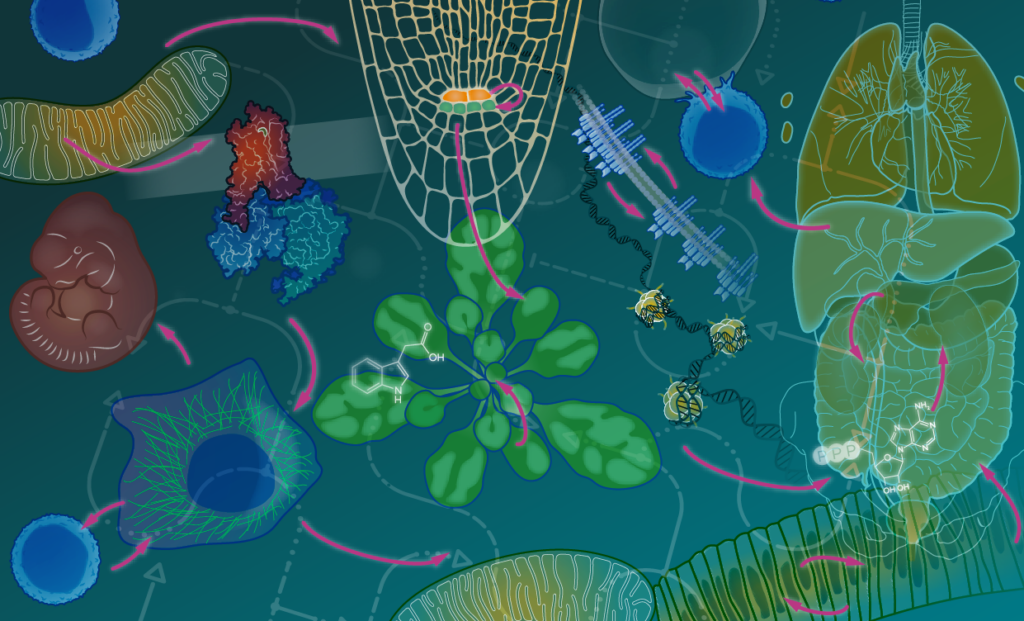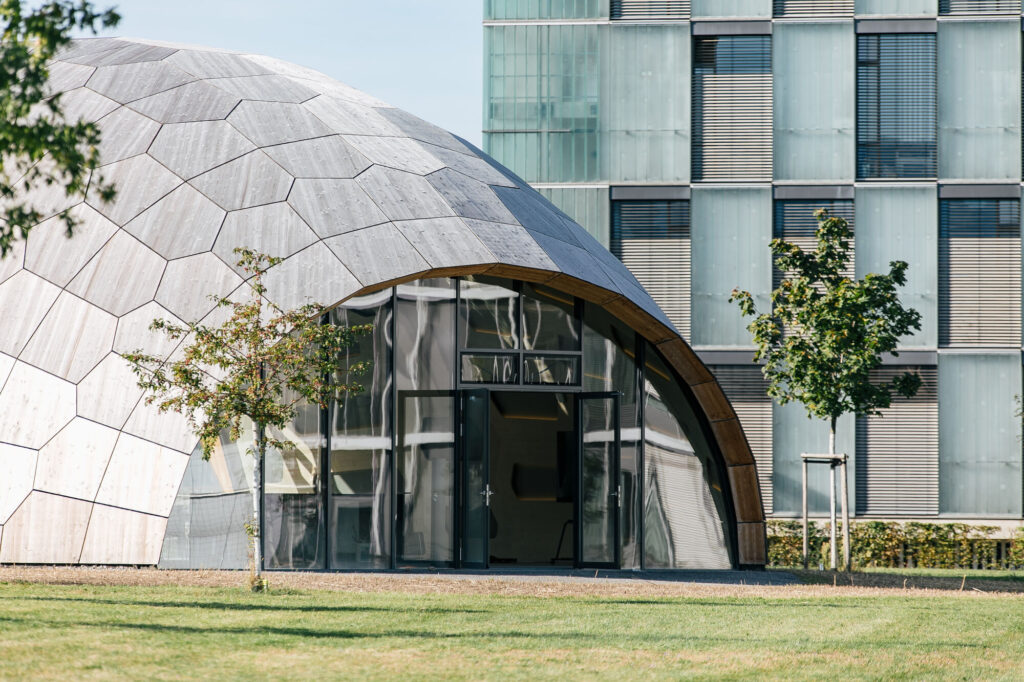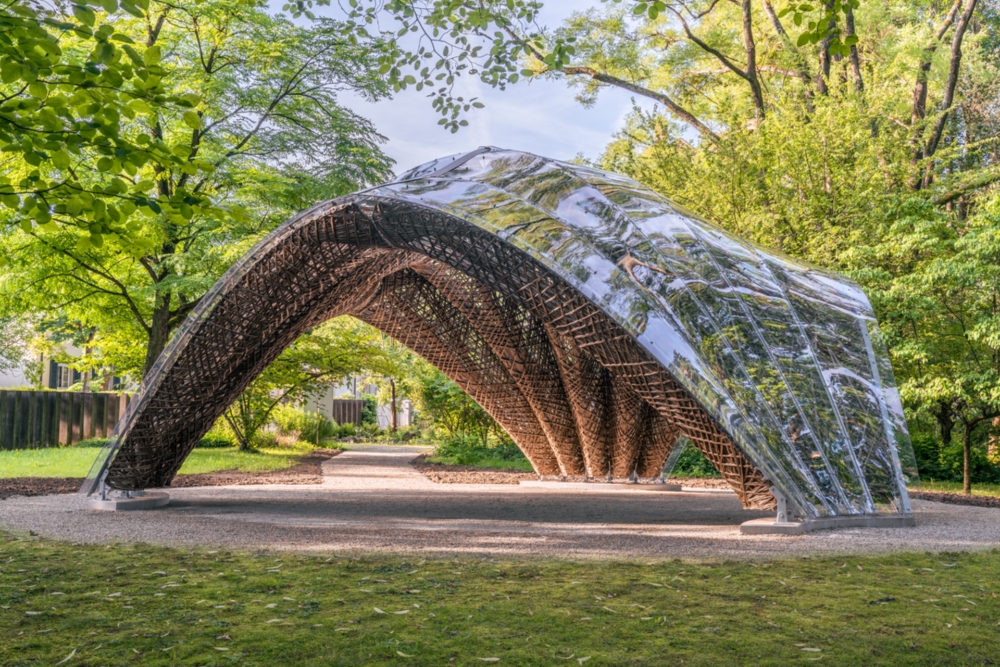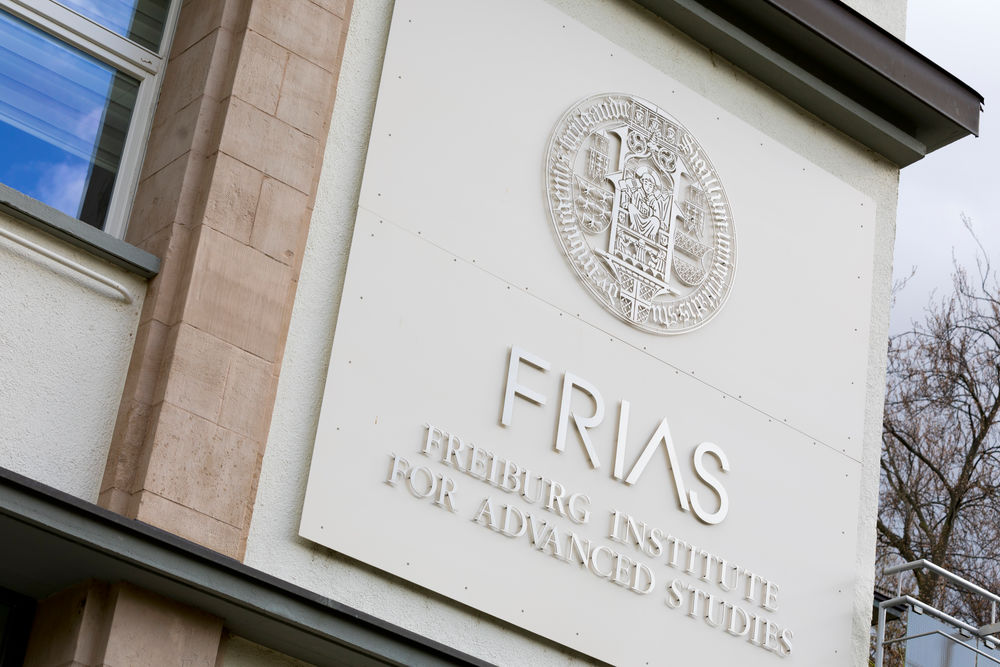Spemann Graduate School of Biology and Medicine (SGBM)
The Spemann Graduate School of Biology and Medicine (SGBM) offers a dynamic interdisciplinary training program that prepares students for future scientific challenges. Its ultimate goal is to create a top notch “Life Scientist of the Future” who can assimilate knowledge and techniques from various disciplines as well as combine basic with translational research, biotechnology and drug development.
BIOSS – Centre for Biological Signalling Studies
Biological signalling processes are the key regulators of cellular activity in all types of cells in living organisms. The BIOSS – Centre for Biological Signalling Studies in Freiburg uses modern analytical methods and strategies of synthetic biology to study biological signalling processes in a creative and playful way. The main focus of research at BIOSS is to initiate and promote a dialectic process between scientists using analytical and synthetic approaches in signalling research.
BrainLinks-BrainTools
BrainLinks-BrainTools unites life sciences, engineering, and clinical applications in Freiburg, thus anchoring neurotechnology as a research axis between three faculties of the University – Biology, Medicine, and Engineering – and various cooperation partners. These emerging opportunities for strong joint research and education between neuroscience and engineering deliver novel interdisciplinary results in an area highly relevant for society as a whole.
Freiburg Institute for Advanced Studies (FRIAS)
The Freiburg Institute for Advanced Studies (FRIAS) is the international research college of the University of Freiburg. As an integral part of the university, the Institute unites under its roof the humanities and social sciences, medicine, the natural and life sciences, and engineering. FRIAS offers leading academics as well as outstanding early-stage researchers from Freiburg and around the world the opportunity to concentrate exclusively on their individual or joint research projects for a certain period of time. It is in this way that the Institute creates a unique space and atmosphere for research within the university.





